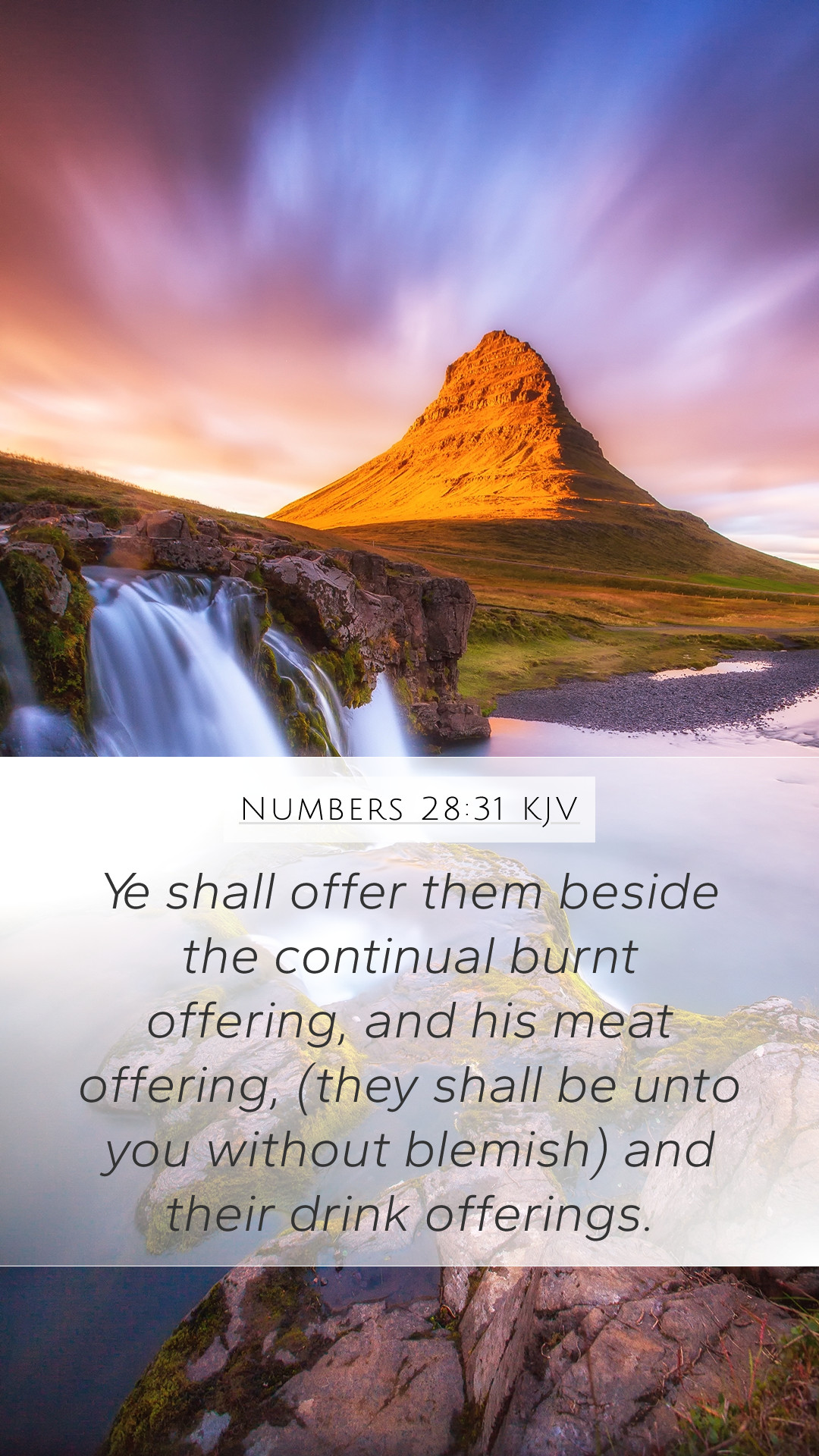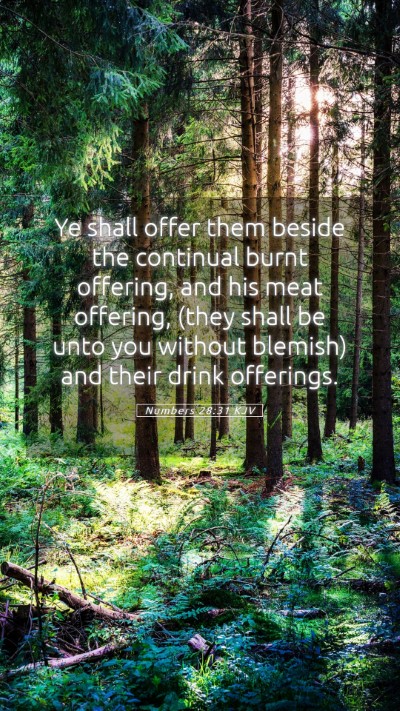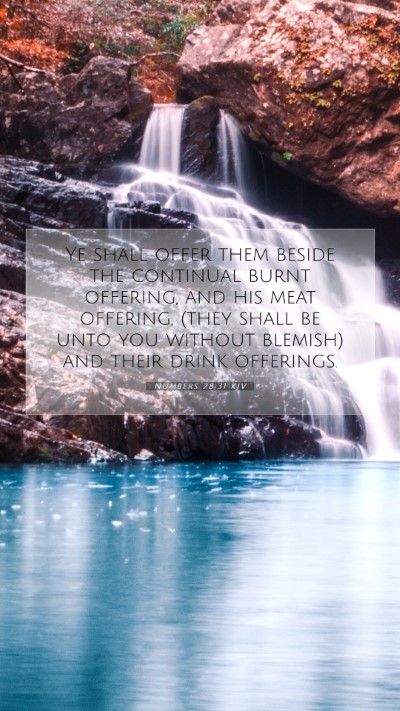Bible Verse Commentary: Numbers 28:31
Understanding Numbers 28:31 is essential for grasping the significance of offerings and sacrifices in the Old Testament, particularly in the context of worship and devotion to God. This verse reads:
"And you shall say to them, 'This is the offering made by fire which you shall offer to the Lord: two lambs of the first year without blemish, day by day, as a regular burnt offering.'" (Numbers 28:31)
Overview of Numbers 28:31
This verse is part of the instructions given to the Israelites regarding their regular burnt offerings. The emphasis here is on the consistency and purity required in worship. The practice of sacrifice in the Old Testament served as a key component in maintaining a relationship with God, highlighting themes of atonement, devotion, and communal identity.
Key Insights from Public Domain Commentaries
Matthew Henry's Commentary
Henry emphasizes the importance of the regularity and consistency in the offerings. He notes that the burnt offerings symbolize complete dedication and surrender to God, as they were completely consumed by fire, representing our lives offered to God in a spirit of sacrifice. The specificity of offering two lambs daily underlines the need for constant devotion and the significance of unblemished offerings, which points to the purity required in approaching God.
Albert Barnes' Commentary
Barnes discusses the prescribed nature of the burnt offerings, noting that they are presented as a daily ritual. This repetitiveness signifies not only a physical act of worship but also the need for continual spiritual renewal. He reflects on how these sacrifices serve as a reminder of the overarching covenant between God and His people, reinforcing the obligations they have towards Him. The reference to two lambs symbolizes completeness and the thoroughness with which they are to honor God each day.
Adam Clarke's Commentary
Clarke provides historical context by explaining that these directives were part of the Law given to Moses on Mount Sinai. He elucidates that this verse illustrates God's desire for an abiding relationship with His people through sacrificial offerings. Clarke also comments on the selection of lambs, which points to the themes of innocence and the foreshadowing of the ultimate sacrifice—Jesus Christ—the Lamb of God who takes away the sins of the world.
Significance in Biblical Context
The significance of Numbers 28:31 lies not just in the act of offering but in what it represents in the greater narrative of Scripture. It underscores the themes of:
- Continuous Devotion: The requirement of daily offerings reflects a life continually devoted to God.
- Purity and Sacrifice: Offering lambs without blemish symbolizes the need for purity in our service to God.
- Covenant Relationship: These instructions reaffirmed the covenantal relationship between God and His people, emphasizing their roles and responsibilities.
Practical Application
For modern believers, this verse encourages us to consider how we express our own devotion and worship. It prompts questions such as:
- How do we exhibit regular acts of worship in our daily lives?
- Are we presenting our best and purest selves in our relationship with God?
- How can we maintain a covenantal mindset in our commitments to God and each other?
Cross References
To deepen your understanding of Numbers 28:31, consider exploring the following related verses:
- Exodus 12:5: Discusses the Passover lamb's requirements.
- Leviticus 1:10: More details on animal offerings.
- Hebrews 10:12: Connects to Christ as the ultimate sacrifice.
Conclusion
Nig[multimedia].
The study of Numbers 28:31 through the lenses of history and commentary reveals rich layers of meaning for both the ancient Israelites and modern believers. By understanding its context, we can apply the spiritual lessons of dedication, purity, and covenantal fidelity in our personal lives and communities.


